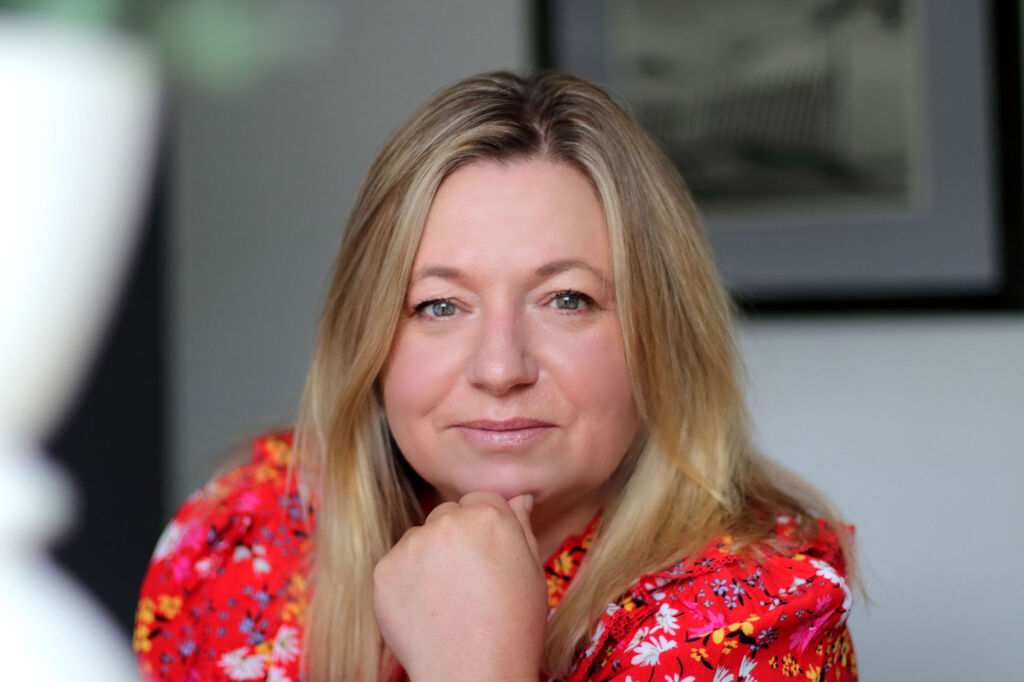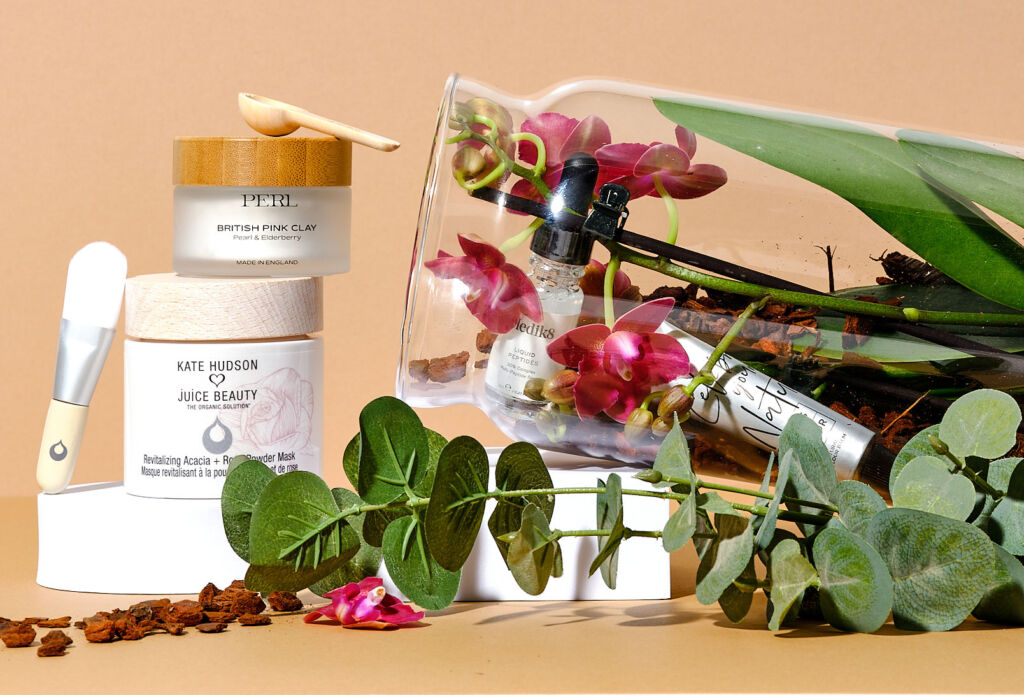

We catch up with Wendy Martin, co-founder of Counter Culture, to find out more about the revolutionary online marketplace that’s helping us to have a positive impact on our planet.
We should all be looking for ways to make more sustainable everyday choices, and our beauty routines are an easy place to start.
It’s no surprise that the beauty industry is having a big impact on plastic waste, what with all the plastic containers clogging up our bathroom cabinets. A lot of this plastic ends up in landfill or the ocean.
What’s more, the ingredients themselves are often not sustainably sourced and can contain harmful chemicals. That’s where Counter Culture can help.


It’s a website that brings some of the best sustainable beauty brands into one shop, making it easier to make ethical choices when stocking up on your favourite products. It’s a “more sustainable shopping experience”, as the brand describes it.
What I love about Counter Culture is you can browse loads of gorgeous products from boutique brands and feel reassured you’re making a good choice. Many of the products are handmade in small batches in the UK, too. As well as championing sustainable and ethical brands, Counter Culture also puts an emphasis on working with female-led businesses. What’s not to love?
Counter Culture makes sure every product featured on its website meets the set criteria of being sustainable. They rigorously audit brands to check their sustainable and ethical credentials.
All the products are labelled with badges, too, so you know what you’re getting.
Badges include:
- Reduced plastic or plastic-free
- Waterless products
- Vegan friendly
- Upcycled
- Recyclable packaging
- Refillable
You can filter by some of these attributes too!
We chatted with Wendy Martin, co-founder of Counter Culture, to find out more about this revolutionary new way to buy your beauty go-to’s and some ways we can make our beauty routines more sustainable.
Luxurious Magazine: How did you come up with the idea of launching Counter Culture?
Wendy Martin: My business partner Mark and I realised that we shared a passion for launching a business that supports the shift to more sustainable everyday living. Research told us that the average consumer uses 12-16 products a day, and the beauty industry produces some 120bn units of packaging annually, so we decided this was an area we needed to be in to encourage change.
We want to make it easier for people to discover, shop and switch to more sustainable alternatives and to empower them to shop in line with their values, whether that be vegan, cruelty-free, plastic-free, refillable, multi-purpose, upcycled etc. Our vision is both B2C and B2B. Our e-commerce platform enables consumers to shop from over 100 brands, from B Corps to small, indie brands.
Our B2B strategy offers sustainable options to corporate and business clients who reward and incentivise consumers and employees. It’s a great way to accelerate the switch to more sustainable alternatives, and often B2B2C rewards and incentives only include a few sustainable options.
LM: How did your own journey into the sustainable beauty market begin?
Wendy: Both Mark and I are not beauty industry veterans! My earlier career was at Visa, whereas Mark worked in renewable energy, with both of us moving into the world of startups.
Our passion lies in our desire to make a difference and in, championing sustainable and ethical business and driving consumer change. That said, we have both grown to love and appreciate the beauty and wellness industry, albeit we have so much more to learn, both in terms of the sector itself and what it takes to build a brand within it.
LM: Why is it important to you to ensure beauty products are ethically sourced and produced?
Wendy: When you look at the fact that the “average woman” (whomever she may be) uses between 12-16 products a day before she leaves the house and over 120 billion units of packaging are produced every year by the global beauty industry, much of which ends up in landfill, then you have to ask the question, why wouldn’t we want to focus our offering solely on sustainable and ethical brands and products?
We look for progress, not perfection. We assess brands on a variety of sustainable and ethical measures. Many of our brands have already achieved B-Corp status and/or been accredited by a variety of independent bodies such as COSMOS, Leaping Bunny or the Vegan Society.
For others, they are earlier in their journey but tick a number of sustainable and ethical values and have a commitment to continually strive to reduce their impact, seeing it as a journey, not a destination.
LM: Why did you decide to focus on female-led brands?
Wendy: It’s essential female founders get more support in every sector, including beauty. Research shows all female-founded businesses secured less than 2p in every £1 of VC investment, despite female-founded companies continuing to outperform in the broader market.
Within our broader vision, we want to help support emerging, female-founded businesses to get investment and retail ready. But right now, recognising we are still very early in our own journey, we’re focused on championing as many female founders as we can.
LM: What are some of your favourite go-to sustainable beauty brands on your site and why?
Wendy: There are so many, but if I had to name a few, then here goes. I’m a fan of brands that are focused on “anti-stress” beauty. Great examples include Faace, with their period and menopause masks, and Centred & Abyssian, with their focus on scalp as well as hair health.
I’m also a fan of multi-use products, like Seeds of Colour with their make-up balm that’s perfect for lips, cheeks and eyes and Dr Lipp with their stripped-back, multi-use products. Some products that I think are really killing it, and are personal favourites, include Medik8’s Press & Glow & Crystal Retinal and Juice Beauty’s Prebiotix Freshly Squeezed Glow.
LM: What are some ways we can make our beauty routines more sustainable?
Wendy: Shopping more consciously from sites like Counter Culture is, of course, a great first step, and looking out for accreditation makes it easier to make these choices.
For example, we utilise Ethy, the eco-shopping app which verifies sustainable and ethical credentials to help consumers discover and switch to more environmentally considerate brands.
I’d also encourage shoppers to purchase from brands that are joining the refill revolution; so many great brands are switching to this business model, and we have several refill brands on-site, including; Honeypie, Perl, Fais, Milly & Sissy and Indie Refill.
LM: Finally, what’s next for Counter Culture? What are you excited about?
Wendy: We are still at the start of our journey, and much of our vision has yet to be brought to life. But in essence, enhance our platform to make brand and product discovery easier, increase our offering and expand our service into additional markets.
Some of the trends we hope to help grow include:
- Skinstreaming – Stripped back skincare with multi-tasking products. Saves both time and money.
- Hair Care Like Skin Care – The science of skincare comes to hair with products that support both scalp and hair health and combat the effects of stressors.
- Skin Hydration & Glow – Barrier-bettering, hydration heroes and glow-getting products.
- Sustainable Solutions – Increasing demand for waterless, refillable, and recyclables. Brands that we’d love to be bringing to our platform soon include By Sarah London, Organic Pharmacy and Neom, to name just a few!
You can find out more and browse hundreds of eco-friendly beauty products at www.counterculturestore.co.uk.
Read more exclusive interviews and profile features here.
